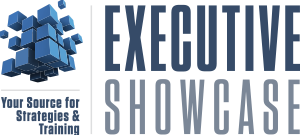In a demanding corporate environment where days are consumed putting out daily fires, finding the time to be a Strategic HR Internal Consultant (SHRIC) is a real challenge. Ironically, most HR executives confirmed that their annual performance is measured primarily on establishing and executing new impactful strategies and not the success of the daily firefighting. SHRICs recommend and execute strategic people initiatives and training that drive their organizations.
Over a decade ago, world-renowned business educator and coach, Dr. Marshall Goldsmith wrote the following in a Harvard Business Review article:
“There are four unique challenges facing internal HR coaches:
1. Confidentiality: If leaders believe that the internal HR coach will use disclosure against them in future personnel decisions, the coaching process will probably not work.
2. Credibility: In some cases, internal HR coaches are not given the credibility of external coaches. If this is true, the internal coach can deliver the same message as the external coach, but the message will be discounted and possibly ignored.
3. Training: Many external coaches are specialists. (For example, in my work as an external coach, I only help already successful leaders achieve positive change in behavior. That is all I do.) HR professionals often have to know about many topic areas and may lack training or experience for coaching in some specific client needs.
4. Time: From my experience, this is the biggest challenge. Many of the great HR professionals I know can manage confidentiality, have great credibility, and are well-trained as coaches. They are so over-committed now that they don’t have the time to take on this type of assignment.”
It was true then and it is even truer today as HR leaders are stretched farther. I took some time to evaluate each of the above points and suggest tips to overcoming each challenge in the present day.
Confidentiality – The bottom line here is trust. Although trust is greatly based on experience, time must be dedicated to building trusting relationships in the workplace. Scenario-based training that facilitates open dialogue will help expedite the trust timeline.
Credibility - Earned over time by not only being tactical but successfully strategic. Increasing your SHRIC credibility will occur if you are able to produce well thought out and impactful strategic programs and training in a timely manner. Whether it is in response to a Business Leader’s request or proactive based on your observations, create programs that clearly demonstrate expected impact to your company’s Business metrics.
Find products that allow you to use the material as your own and that are meant to educate you in addition to being strategic solutions. Having a knowledge level at least one step higher than what is on the presented material will give you the required execution confidence. Fast turnaround of a high-quality program positioned to have significant bottom-line impact is the way to earn credibility.
Training – The root of this challenge is expertise breadth. Having the strategic expertise in all facets of HR becomes increasingly challenging the smaller the company. Leveraging available resources to quickly become well versed in the key components of an ever-growing number of People areas is critical. In addition to topical articles, books and webinars, experts are also sharing their knowledge as part of downloadable end-to-end strategies and training.
Time – Marshall calls this out as the biggest challenge of the time (no pun intended) and it continues to be today.
As an experienced professional, you know that it is not an option to solve every problem with additional effort, time and hard work. The law of diminishing returns quickly comes into play. Not to mention the fact that every HR executive wants to set the tone for their culture’s work-life balance. Being a SHRIC is highly valued yet rarely achieved. The first step is to block out regularly occurring SHRIC times on your calendar to ensure that you are not consumed by the daily fires.
Successful SHRICs work smarter (not harder) by leveraging the works of subject experts so as to not waste time ”reinventing the wheel”. 80% of People initiatives are transferrable across industries and geographies, rendering the intelligent choice to be finding proven executable strategies and training and customizing them to fit your company. Consider leveraging work products from colleagues in your network or an online marketplace where HR Consultants sell products designed to be easily customized.
The challenges Marshall presented over a decade ago still strongly resonate today. The resources available to overcome them in an inexpensive and timely manner have evolved. Achieve your SHRIC goals by leveraging your social connections and HR marketplaces dedicated to expert knowledge transfer.





